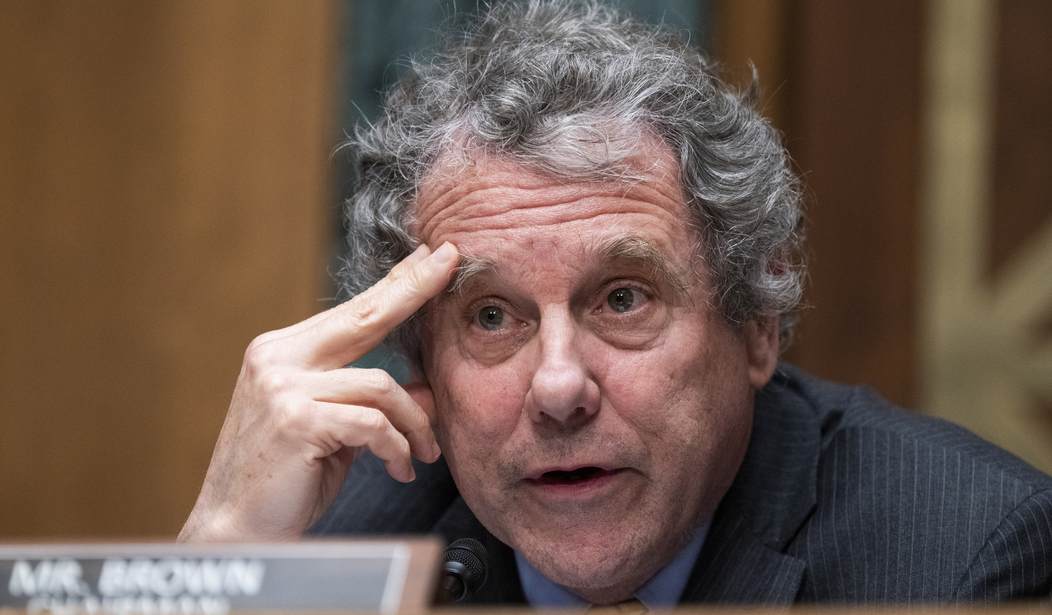Consumers are tired of policies prioritizing abstract regulations over their real needs, and the election results reflect this reality. Policymakers like Sen. Sherrod Brown's (D-Ohio) push for stricter regulatory enforcement is a prime example of how Washington's math and policy don’t add up and neglect the challenges American communities and businesses face. Sen. Brown sabotaged his reelection campaign by prioritizing hypothetical concerns over tangible issues, and his loss reflects a broader frustration with Democrats who align too closely with regulatory policies that ignore voters' concerns.
This frustration is evident in the shifting political landscape. Recent exit polls show that the traditional Democratic base is cracking. Latinos, black men, and other typically blue voters are starting to abandon Democratic candidates. The results are reflective of a new reality that many lawmakers have not yet caught up with: Americans want a more balanced economic approach — one that emphasizes reasonable regulations, narrows government oversight, puts consumer protection first, and doesn’t limit economic growth.
Incumbent Sen. Brown's loss can be seen as a microcosm of the broader trend of regulation-focused lawmakers being out of touch with the needs of their constituents. Brown has shown continued support for federal agencies, such as the Federal Trade Commission (FTC), Department of Justice (DOJ), and Consumer Financial Protection Bureau (CFPB), despite their failings and overburdensome enforcement actions.
For example, Brown joined Sen. Elizabeth Warren (D-Mass.) and other lawmakers in support of the FTC’s rule to ban noncompete agreements. The ban would have put at risk businesses’ ability to compete, making it more difficult for them to protect their trade secrets. Small businesses, the backbone of the American economy, would have been particularly hard hit by this ban. These businesses often lack the resources to compete with larger companies, and their intellectual property is among their most valuable assets. Ultimately, a federal judge blocked the ban, finding it “arbitrary and capricious.”
During his time in office, Brown has also been a fierce defender of the CFPB, which has faced concerns about implementing an increasing number of policies and actions that could make it harder for banks and financial institutions to serve their customers. For instance, the CFPB’s proposed rule to restrict payday lending would have inadvertently led to lower-class Americans having less access to credit, undermining the very financial inclusion they claim to champion. The rule was ultimately withdrawn in 2020, but the agency has continued to roll out similarly ill-thought-out actions that could negatively impact consumers, such as its proposals on junk fees and medical debt.
By backing these aggressive regulations, Brown has sided with an out-of-touch bureaucracy rather than listening to the needs of ordinary Americans. In doing so, he alienated businesses and consumers dealing with the everyday realities of our cost-of-living crisis and facing the consequences of excessive regulation.
This election result serves as a wake-up call for policymakers like Brown, who have long believed that more regulation is the solution to every problem. President Trump and the Republican Party’s sweeping success proves that Americans increasingly see the harm in an overly burdensome regulatory environment, and many are no longer willing to support lawmakers who continue to empower unelected government agencies.
Meanwhile, agencies like the FTC and DOJ continue to implement aggressive rulemaking and enforcement actions despite the clear unpopularity of these positions. Actions like the FTC’s recent “Click-to-Cancel” rule for subscription services and the DOJ and FTC’s updates to the Hart-Scott-Rodino (HSR) form will place a massive burden on small and medium-sized businesses (SMBs), limiting their ability to provide convenience and better services to consumers. While supporters claim that these rules will foster competition, many have pointed out that they will ultimately end up halting innovation and growth altogether.
Policymakers must recognize that voters on both sides of the aisle are increasingly rejecting this top-down regulatory approach in favor of a policy direction that supports both consumers and businesses. Those lawmakers facing reelection in 2026 should view Sen. Brown’s election results as a cautionary tale and make sure American working families understand their math.









Join the conversation as a VIP Member